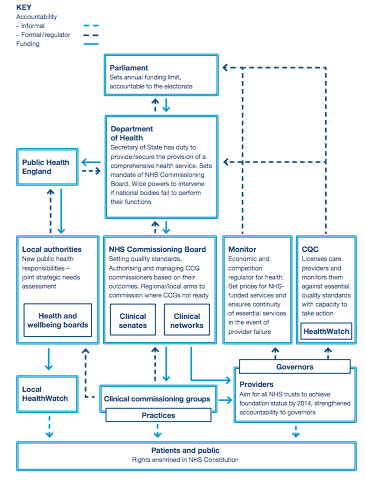There was laughter in the room when John Lister ironically described the new NHS structure as “streamlined” and shared a Guardian graphic of the new bureaucracy. It set the tone for the NUJ’s Reporting on our health services masterclass, aimed at helping health reporters get to grips with confusing changes.
Lister, senior lecturer in health journalism at Coventry University, identified some of the main issues for journalists:
- access to information
- getting that information in a timely manner
- getting a range of information – not just press releases, but also Board papers, statistics, other info that isn’t specifically targeted at the press
- transparency
- access to expert analysis. (You have the info, but can you make sense of it? Is there a specialist who can put it in context or add insight?)
He spoke about the slippery nature of transparency. For example, NHS England (the new name for the NHS Commissioning Board) is relatively open to reporting, but the real nitty-gritty decisions are made by Local Area Teams (LATs). Continue reading

